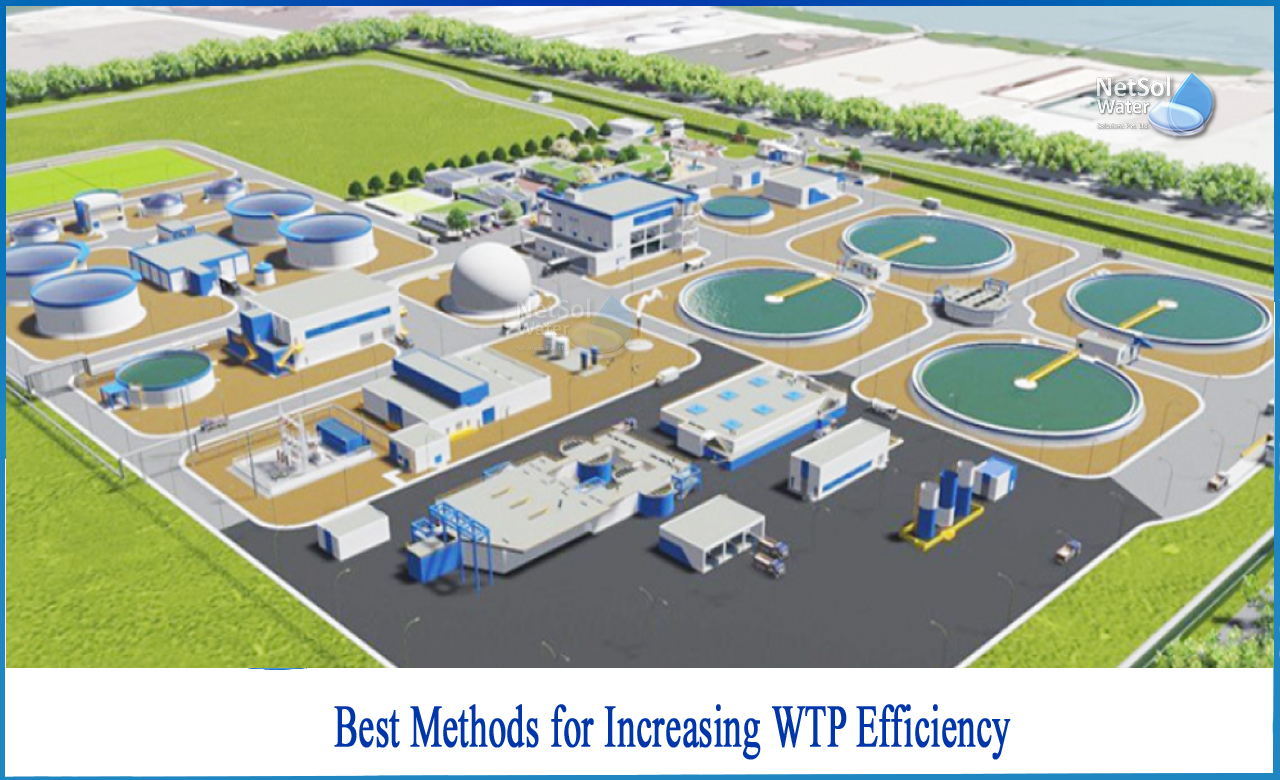How can water treatment plant efficiency be improved?
Even against backdrop of the global water crisis, communities are under more pressure than ever to handle water effectively. Water treatment plant operators should review the plant's water treatment performance on a regular basis to verify that systems are using the most efficient equipment and technology. It may be quite expensive when water treatment plants are not running effectively. Inefficient and antiquated pumping and process equipment, along with outmoded water management procedures, can result in greater operating expenses and lesser revenue received, significantly impacting a treatment plant's bottom line.
Several methods for increasing Water treatment plant efficiency:
1: Conduct a pump audit
Pumps are utilized in several water-processing processes. Traditional practice, particularly in plants older than ten years, is to build pumps based on peak plant flow, whereas in reality these pumps work at a variable flow dependent on seasonality and system demand. As a result, many pumps are large. Constant-speed pumps that run in an on-and-off mode consume more water than necessary, resulting in water and energy waste. As a result, facilities should replace their constant speed pumps with variable frequency drives (VFDs) to decrease water loss and energy consumption while also avoiding pump wear and tear caused by repetitive on-off cycling.
2: Conduct self-evaluation
Accreditation has become an important technique in the business for setting, promoting, and achieving performance goals. It not only assists managers and regulators in identifying past patterns, but it also assists in determining today's baseline performance and quantifying relative performance among utilities.
Operators of water treatment plants should begin by completing the Water Resource Foundation's (WRF) self-assessment, which is included in the publication Performance Benchmarking for Effectively Managed Water Utilities. The self-assessment is a valuable asset for utilities in identifying performance gaps and developing plans to fix such gaps.
3: Technology should be evaluated
With a better understanding of the efficacy of present water practices, the next stage is to assess the technology employed to produce water. It is critical to perform a technology audit to verify that infrastructure is running smoothly.Filter technology that uses less backwash water is already standard in the market, however infrastructure in water treatment facilities that have been in place for five to ten years may be using more backwash water than is necessary. Managers of treatment facilities should assess current technology and replace it as needed with more efficient goods and solutions.
The system update lowers backwash filtration rates, resulting in a more than 50% reduction in backwash water, hence lowering water waste and energy usage.Other water-consuming processes, such as sludge skimming in Dissolved Air Flotation (DAF) systems or effluent from flocculation, sedimentation, or clarifying basins, may and should be subjected to a similar examination.
To remove particulates from the liquid, the combined wastewater from the flocculation, sedimentation, or clarity steps, as well as the filter backwash, should pass through a sludge-thickening stage. Upgrading to a high-density sludge process not only results in reduced water waste, but it also benefits water treatment facilities by reducing sludge waste volumes, which can minimize sludge disposal costs.
4: Put in smart technologies
When it comes to water management regulations, water treatment facilities may want to consider adding smart metering technology to monitor their distribution network. This can aid in the reduction of non-revenue water waste.
Smart technologies, such as Automated Meter Reading (AMR) and Advanced Metering Infrastructure (AMI), let utilities assess performance and optimize infrastructure. AMR captures consumption, diagnostic, and status information from water meters automatically, eliminating the need for a human meter read and simplifying and improving data collection accuracy.
The data, when combined with analytics, can assist utilities and their customers in better managing water consumption. AMI enables utilities to make near-real-time choices based on performance and insights. It is a more robust solution than AMR, which comprises smart meters, communication networks, and data management systems that allow utilities and consumers to communicate in both directions.
5: Examine the data
The next stage is to access and analyse the data in order to evaluate infrastructure performance and determine what changes are required to further increase efficiency. Because many water treatment facilities are built without much care given to data collecting, treatment plant managers must ensure that they are measuring and monitoring the appropriate efficiency criteria. Water treatment plant managers should examine their water management procedures on a regular basis to ensure that the facility is working efficiently, reducing energy costs and enhancing water conservation efforts.
We provide a variety of program levels that enable system service for every demand and size, with premium services and high-quality products.
Netsol Water is Greater Noida-based leading water & wastewater treatment plant manufacturer. We are industry's most demanding company based on client review and work quality. We are known as best commercial RO plant manufacturers, industrial RO plant manufacturer, sewage treatment plant manufacturer, Water Softener Plant Manufacturers and effluent treatment plant manufacturers. Apart from this 24x7 customer support is our USP. Call on +91-9650608473, or write us at enquiry@netsolwater.com for any support, inquiry or product-purchase related query.



